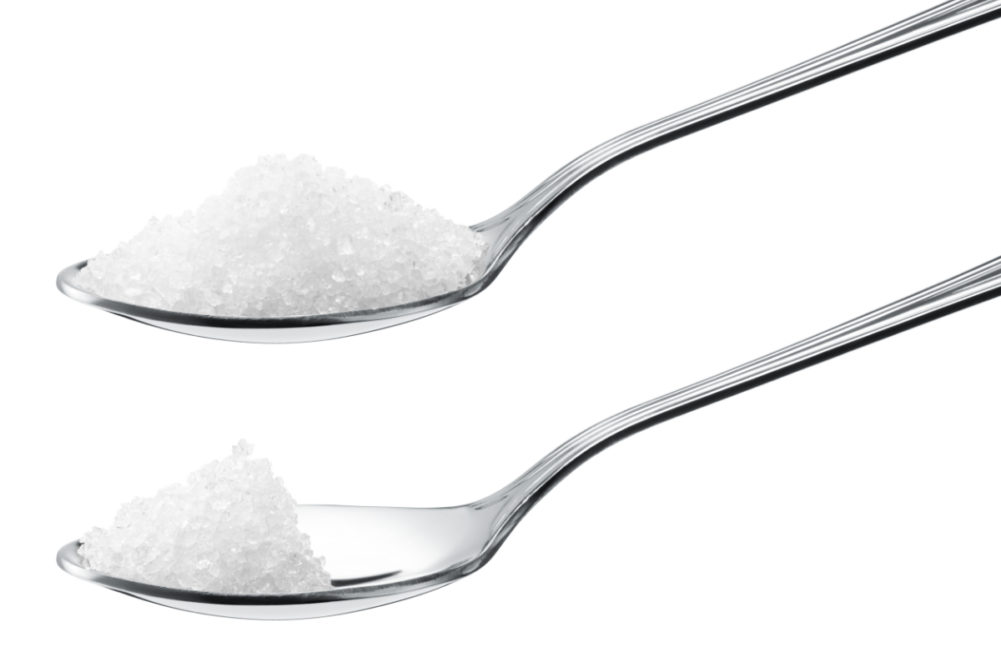The recently released 2020 Food & Health Survey from the International Food Information Council (IFIC) showed fewer Americans were trying to limit or avoid sugars in their diet in 2020 than in 2019, and that there has been no change in consumers’ preferences for sugars versus low- and no-calorie sweeteners versus using neither.
The survey showed 74% of consumers were trying to limit or avoid sugars, down from 80% in the 2019 survey. About 60% of those were attempting to do so by drinking water instead of caloric beverages, with just over 40% limiting certain foods and beverages in their diets. About 30% were choosing reduced-sugar foods, and less than 20% were switching from full calorie beverages to low- and no-calorie options.
Thirty-four percent of those surveyed used low- and no-calorie sweeteners, unchanged from last year, for the top two reasons of losing weight and consuming less sugar.
The main reason for not using sugar was to avoid extra calories, with the second most common response being, “I think sugar is unhealthy.”
For those not favoring low- and now-calorie sweeteners, the primary reason was that they preferred the taste of sugar, with 63% responding that they thought low- and no-calorie sweeteners were unhealthy, although that number was down from 73% last year.
Further, the survey showed that 40% of consumers considered total sugars and added sugars equally important on information labels, with more indicating they were more likely to consider total sugars than added sugars.
At the same time, more consumers saw added sugars as having a significant impact on their health versus naturally-occurring sugars. Seventy-one percent of consumers with a college degree said the amount of added sugars consumed had an impact on health versus 62% of those with less than a college degree.
In addition to sugars and sweeteners, the survey also asked questions about consumers’ views on the Dietary Guidelines for Americans, diets and eating patterns, nutrients and desired health benefits, food production, food safety, caffein consumption and for the first time the impact of the coronavirus. More than 80% said they had altered their food habits as a result of COVID-19, with the majority of those cooking more at home.
Taste remained the primary driver in purchase decisions, as it has over the past decade, increasing modestly in the past two years. Price was the second major driver. Environmental sustainability, though ranked below taste, price, healthfulness and convenience, had the largest increase from 2019 as a driver of purchases. Convenience as a driving factor declined from 2019.
Beliefs about sources of weight gain changed little from 2019, with sugars, carbohydrates and “all sources same” all receiving 24%, fats 16%, protein 4% and “not sure” 8%.
Familiarity and knowledge about the Dietary Guidelines for Americans increased significantly from 2010, with 41% indicating familiarity versus 23% a decade ago, but there were wide differences in health status and education levels. Of those considering themselves in excellent/very good health, 49% said they knew a lot/fair amount about the guidelines versus only 29% of those in poorer health. Forty-seven percent of consumers with a college degree said they knew a lot/fair amount about the guidelines versus 37% of those with less than a college degree. About 30% of respondents said they had never heard of the dietary guidelines in 2010 versus less than 15% in 2020.
The online survey of 1,011 Americans between the ages of 18 and 80 was conducted by Greenwald & Associates from April 8-16, just at the start of the COVID-19 shelter-at-home period, and was weighted by region, age, education, gender and race/ethnicity. Of those surveyed, 30% were 18 to 34 years old, 25% each were 35 to 49 and 50 to 64, and about 20% were 65 to 80. It was the 15th IFIC survey.






